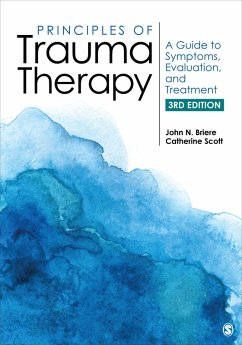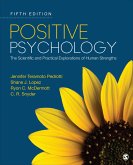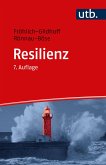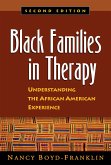John N Briere, Catherine Scott
Principles of Trauma Therapy
A Guide to Symptoms, Evaluation, and Treatment
John N Briere, Catherine Scott
Principles of Trauma Therapy
A Guide to Symptoms, Evaluation, and Treatment
- Broschiertes Buch
- Merkliste
- Auf die Merkliste
- Bewerten Bewerten
- Teilen
- Produkt teilen
- Produkterinnerung
- Produkterinnerung
Bestselling text Principles of Trauma Therapy: A Guide to Symptoms, Evaluation, and Treatment, Third Edition covers the modern treatment of psychological trauma that is both comprehensive in scope yet highly practical in application.
Andere Kunden interessierten sich auch für
![Counseling Children and Adolescents in Schools Counseling Children and Adolescents in Schools]() Robyn S HessCounseling Children and Adolescents in Schools202,99 €
Robyn S HessCounseling Children and Adolescents in Schools202,99 €![Positive Psychology Positive Psychology]() Jennifer Teramoto PedrottiPositive Psychology184,99 €
Jennifer Teramoto PedrottiPositive Psychology184,99 €![Encyclopedia of Community Encyclopedia of Community]() Karen Christensen / David LevinsonEncyclopedia of Community1.229,99 €
Karen Christensen / David LevinsonEncyclopedia of Community1.229,99 €![Resilienz Resilienz]() Klaus Fröhlich-GildhoffResilienz17,00 €
Klaus Fröhlich-GildhoffResilienz17,00 €![Creation Myths Creation Myths]() Marie-Louise Von FranzCreation Myths36,99 €
Marie-Louise Von FranzCreation Myths36,99 €![Black Families in Therapy Black Families in Therapy]() Nancy Boyd-FranklinBlack Families in Therapy53,99 €
Nancy Boyd-FranklinBlack Families in Therapy53,99 €![Reunited Reunited]() Ernesto CastañedaReunited30,99 €
Ernesto CastañedaReunited30,99 €-
-
-
Bestselling text Principles of Trauma Therapy: A Guide to Symptoms, Evaluation, and Treatment, Third Edition covers the modern treatment of psychological trauma that is both comprehensive in scope yet highly practical in application.
Hinweis: Dieser Artikel kann nur an eine deutsche Lieferadresse ausgeliefert werden.
Hinweis: Dieser Artikel kann nur an eine deutsche Lieferadresse ausgeliefert werden.
Produktdetails
- Produktdetails
- Verlag: Sage Publications
- 3rd edition
- Seitenzahl: 400
- Erscheinungstermin: 27. Februar 2025
- Englisch
- ISBN-13: 9781544333564
- ISBN-10: 1544333560
- Artikelnr.: 64298110
- Herstellerkennzeichnung
- Libri GmbH
- Europaallee 1
- 36244 Bad Hersfeld
- gpsr@libri.de
- Verlag: Sage Publications
- 3rd edition
- Seitenzahl: 400
- Erscheinungstermin: 27. Februar 2025
- Englisch
- ISBN-13: 9781544333564
- ISBN-10: 1544333560
- Artikelnr.: 64298110
- Herstellerkennzeichnung
- Libri GmbH
- Europaallee 1
- 36244 Bad Hersfeld
- gpsr@libri.de
John N. Briere, PhD is Professor Emeritus of Psychiatry and the Behavioral Sciences at the Keck School of Medicine, University of Southern California, and is past director of the Psychological Trauma Program at Los Angeles County + USC Medical Center. A past president of the International Society for Traumatic Stress Studies (ISTSS), he is recipient of the Award for Outstanding Contributions to the Science of Trauma Psychology from the American Psychological Association, the Robert S. Laufer Memorial Award for Scientific Achievement from ISTSS, the Presidential Award for Contribution to Methods from the Association for Scientific Advancement in Psychological Injury and Law, and the William N. Friedrich Lecturer: Outstanding Contribution to the Field of Child Psychology from the Mayo Clinic. A long-term student of Buddhist psychology, he has been Remote Faculty at the Institute for Meditation and Psychotherapy since 2013.
Acknowledgments
Introduction to the Third Edition
Part I: Trauma, Effects, and Assessment
1. What Is Trauma?
Single Versus Multiple Traumatic Events In DSM-5
Major Types of Trauma
2. The Psychological Effects of Trauma (John Briere, Catherine Scott, &
Janelle Jones)
What Makes Trauma Responses More Likely, More Intense, or More Complicated?
Types Of Posttraumatic Response
Trauma- and Stressor-related Disorders
Disorders and Symptoms Typically Related to Trauma Exposure
Generic Symptoms Sometimes Associated with Trauma Exposure
Trauma Syndromes in Non-Western Cultures
Complex Posttraumatic Presentations
3. Assessing Trauma and Posttraumatic Outcomes (John Briere, Erin Eadie, &
Catherine Scott)
Assessment In The Clinical Interview
Assessing the Sociocultural Environment
Assessing Current and Past Exposure to Discrimination and Maltreatment
(SDM)
Evaluating the Effects of Trauma
Structured Interviews
Psychological Tests
Trauma-Specific Tests
Recommendations for Assessment through Telehealth Platforms
Part II: Clinical Interventions
4. Central Issues in Trauma Treatment
A Basic Philosophy of Trauma, Recovery, and Growth
Central Treatment Principles
5. Psychoeducation
Handouts
Books
Verbal Information During Therapy
General Focus
Constraints
6. Distress Reduction and Emotional Regulation Training
Dealing with Acute Intrusion
Intervening in Chronic Emotional Dysregulation
Meditation and Yoga
7. Cognitive Interventions
Cognitive processing
Developing a Coherent Narrative
Cognitive Changes Arising from Non-overwhelming Emotional Activation
Cognitive Interventions and Insight
Addressing the Cognitive Impacts of Social Maltreatment
8. Trigger Management
Steps of Trigger Management
Intervening in Triggers and Triggered States
Intervening in DRBs
9. Emotional Processing
Reexperiencing as Trauma Processing
The Components of Trauma Processing
Written Homework
Written Exposure Therapy (WET)
Eye Movement Desensitization and Reprocessing (EMDR; Shapiro, 2018)
The Therapeutic Window
Emotional Processing and Substance Use
Sequence and Session-Level Structure of Memory Processing
10. Increasing Identity and Relational Functioning
Identity Problems
Relational Disturbance
11. Mindfulness in Trauma Treatment
What Is Mindfulness?
Research
The Mindful Therapist
12. Treating the Effects of Acute Trauma (Sarah Stoycos, Heidi Ardern, John
Briere, & Catherine Scott)
Research on Acute Traumatic Stress
Intervening in Acute Posttraumatic Stress: An Overview
Central Components of Treatment for Acute Trauma
Special Issue: Trauma Work in Acute Medical Contexts
13. Remote Treatment of Trauma: Teletherapy Principles
Acceptable Teletherapy Platforms
Teletherapy Guidance for Major Professional Groups
Articles and Guides on Teletherapy Practice
Teletherapy Principles
Part III: Psychobiology and Psychopharmacology of Trauma
14. Psychobiology of Posttraumatic Stress (Catherine Scott, John Briere, &
Janelle Jones)
The Hypothalamic-Pituitary-Adrenal (HPA) Axis and the Adrenergic System
The Endocannabinoid (eCB) System
Other Biological Correlates of PTSD
Findings From Neuroimaging Studies
Integrating Biological Models with Psychological Trauma Theory
15. Psychopharmacology of Trauma (Catherine Scott, Janelle Jones, & John
Briere)
Psychotherapy and Psychopharmacology
Medications for PTSD
Special Topic: Repurposed Drugs and Drug-assisted Psychotherapy
16. Conclusions
Appendix 1: Trauma Exposure Review (TER)
Appendix 2: Social Discrimination and Maltreatment Scale, Short Form
(SDMS-SF)
Appendix 3: Mindfulness-based Breath Training (MBBT) Handout
Appendix 4: A Brief Urge/Emotion Surfing Exercise
Appendix 5: ReGAIN handout
References
Index
About the Authors
Introduction to the Third Edition
Part I: Trauma, Effects, and Assessment
1. What Is Trauma?
Single Versus Multiple Traumatic Events In DSM-5
Major Types of Trauma
2. The Psychological Effects of Trauma (John Briere, Catherine Scott, &
Janelle Jones)
What Makes Trauma Responses More Likely, More Intense, or More Complicated?
Types Of Posttraumatic Response
Trauma- and Stressor-related Disorders
Disorders and Symptoms Typically Related to Trauma Exposure
Generic Symptoms Sometimes Associated with Trauma Exposure
Trauma Syndromes in Non-Western Cultures
Complex Posttraumatic Presentations
3. Assessing Trauma and Posttraumatic Outcomes (John Briere, Erin Eadie, &
Catherine Scott)
Assessment In The Clinical Interview
Assessing the Sociocultural Environment
Assessing Current and Past Exposure to Discrimination and Maltreatment
(SDM)
Evaluating the Effects of Trauma
Structured Interviews
Psychological Tests
Trauma-Specific Tests
Recommendations for Assessment through Telehealth Platforms
Part II: Clinical Interventions
4. Central Issues in Trauma Treatment
A Basic Philosophy of Trauma, Recovery, and Growth
Central Treatment Principles
5. Psychoeducation
Handouts
Books
Verbal Information During Therapy
General Focus
Constraints
6. Distress Reduction and Emotional Regulation Training
Dealing with Acute Intrusion
Intervening in Chronic Emotional Dysregulation
Meditation and Yoga
7. Cognitive Interventions
Cognitive processing
Developing a Coherent Narrative
Cognitive Changes Arising from Non-overwhelming Emotional Activation
Cognitive Interventions and Insight
Addressing the Cognitive Impacts of Social Maltreatment
8. Trigger Management
Steps of Trigger Management
Intervening in Triggers and Triggered States
Intervening in DRBs
9. Emotional Processing
Reexperiencing as Trauma Processing
The Components of Trauma Processing
Written Homework
Written Exposure Therapy (WET)
Eye Movement Desensitization and Reprocessing (EMDR; Shapiro, 2018)
The Therapeutic Window
Emotional Processing and Substance Use
Sequence and Session-Level Structure of Memory Processing
10. Increasing Identity and Relational Functioning
Identity Problems
Relational Disturbance
11. Mindfulness in Trauma Treatment
What Is Mindfulness?
Research
The Mindful Therapist
12. Treating the Effects of Acute Trauma (Sarah Stoycos, Heidi Ardern, John
Briere, & Catherine Scott)
Research on Acute Traumatic Stress
Intervening in Acute Posttraumatic Stress: An Overview
Central Components of Treatment for Acute Trauma
Special Issue: Trauma Work in Acute Medical Contexts
13. Remote Treatment of Trauma: Teletherapy Principles
Acceptable Teletherapy Platforms
Teletherapy Guidance for Major Professional Groups
Articles and Guides on Teletherapy Practice
Teletherapy Principles
Part III: Psychobiology and Psychopharmacology of Trauma
14. Psychobiology of Posttraumatic Stress (Catherine Scott, John Briere, &
Janelle Jones)
The Hypothalamic-Pituitary-Adrenal (HPA) Axis and the Adrenergic System
The Endocannabinoid (eCB) System
Other Biological Correlates of PTSD
Findings From Neuroimaging Studies
Integrating Biological Models with Psychological Trauma Theory
15. Psychopharmacology of Trauma (Catherine Scott, Janelle Jones, & John
Briere)
Psychotherapy and Psychopharmacology
Medications for PTSD
Special Topic: Repurposed Drugs and Drug-assisted Psychotherapy
16. Conclusions
Appendix 1: Trauma Exposure Review (TER)
Appendix 2: Social Discrimination and Maltreatment Scale, Short Form
(SDMS-SF)
Appendix 3: Mindfulness-based Breath Training (MBBT) Handout
Appendix 4: A Brief Urge/Emotion Surfing Exercise
Appendix 5: ReGAIN handout
References
Index
About the Authors
Acknowledgments
Introduction to the Third Edition
Part I: Trauma, Effects, and Assessment
1. What Is Trauma?
Single Versus Multiple Traumatic Events In DSM-5
Major Types of Trauma
2. The Psychological Effects of Trauma (John Briere, Catherine Scott, &
Janelle Jones)
What Makes Trauma Responses More Likely, More Intense, or More Complicated?
Types Of Posttraumatic Response
Trauma- and Stressor-related Disorders
Disorders and Symptoms Typically Related to Trauma Exposure
Generic Symptoms Sometimes Associated with Trauma Exposure
Trauma Syndromes in Non-Western Cultures
Complex Posttraumatic Presentations
3. Assessing Trauma and Posttraumatic Outcomes (John Briere, Erin Eadie, &
Catherine Scott)
Assessment In The Clinical Interview
Assessing the Sociocultural Environment
Assessing Current and Past Exposure to Discrimination and Maltreatment
(SDM)
Evaluating the Effects of Trauma
Structured Interviews
Psychological Tests
Trauma-Specific Tests
Recommendations for Assessment through Telehealth Platforms
Part II: Clinical Interventions
4. Central Issues in Trauma Treatment
A Basic Philosophy of Trauma, Recovery, and Growth
Central Treatment Principles
5. Psychoeducation
Handouts
Books
Verbal Information During Therapy
General Focus
Constraints
6. Distress Reduction and Emotional Regulation Training
Dealing with Acute Intrusion
Intervening in Chronic Emotional Dysregulation
Meditation and Yoga
7. Cognitive Interventions
Cognitive processing
Developing a Coherent Narrative
Cognitive Changes Arising from Non-overwhelming Emotional Activation
Cognitive Interventions and Insight
Addressing the Cognitive Impacts of Social Maltreatment
8. Trigger Management
Steps of Trigger Management
Intervening in Triggers and Triggered States
Intervening in DRBs
9. Emotional Processing
Reexperiencing as Trauma Processing
The Components of Trauma Processing
Written Homework
Written Exposure Therapy (WET)
Eye Movement Desensitization and Reprocessing (EMDR; Shapiro, 2018)
The Therapeutic Window
Emotional Processing and Substance Use
Sequence and Session-Level Structure of Memory Processing
10. Increasing Identity and Relational Functioning
Identity Problems
Relational Disturbance
11. Mindfulness in Trauma Treatment
What Is Mindfulness?
Research
The Mindful Therapist
12. Treating the Effects of Acute Trauma (Sarah Stoycos, Heidi Ardern, John
Briere, & Catherine Scott)
Research on Acute Traumatic Stress
Intervening in Acute Posttraumatic Stress: An Overview
Central Components of Treatment for Acute Trauma
Special Issue: Trauma Work in Acute Medical Contexts
13. Remote Treatment of Trauma: Teletherapy Principles
Acceptable Teletherapy Platforms
Teletherapy Guidance for Major Professional Groups
Articles and Guides on Teletherapy Practice
Teletherapy Principles
Part III: Psychobiology and Psychopharmacology of Trauma
14. Psychobiology of Posttraumatic Stress (Catherine Scott, John Briere, &
Janelle Jones)
The Hypothalamic-Pituitary-Adrenal (HPA) Axis and the Adrenergic System
The Endocannabinoid (eCB) System
Other Biological Correlates of PTSD
Findings From Neuroimaging Studies
Integrating Biological Models with Psychological Trauma Theory
15. Psychopharmacology of Trauma (Catherine Scott, Janelle Jones, & John
Briere)
Psychotherapy and Psychopharmacology
Medications for PTSD
Special Topic: Repurposed Drugs and Drug-assisted Psychotherapy
16. Conclusions
Appendix 1: Trauma Exposure Review (TER)
Appendix 2: Social Discrimination and Maltreatment Scale, Short Form
(SDMS-SF)
Appendix 3: Mindfulness-based Breath Training (MBBT) Handout
Appendix 4: A Brief Urge/Emotion Surfing Exercise
Appendix 5: ReGAIN handout
References
Index
About the Authors
Introduction to the Third Edition
Part I: Trauma, Effects, and Assessment
1. What Is Trauma?
Single Versus Multiple Traumatic Events In DSM-5
Major Types of Trauma
2. The Psychological Effects of Trauma (John Briere, Catherine Scott, &
Janelle Jones)
What Makes Trauma Responses More Likely, More Intense, or More Complicated?
Types Of Posttraumatic Response
Trauma- and Stressor-related Disorders
Disorders and Symptoms Typically Related to Trauma Exposure
Generic Symptoms Sometimes Associated with Trauma Exposure
Trauma Syndromes in Non-Western Cultures
Complex Posttraumatic Presentations
3. Assessing Trauma and Posttraumatic Outcomes (John Briere, Erin Eadie, &
Catherine Scott)
Assessment In The Clinical Interview
Assessing the Sociocultural Environment
Assessing Current and Past Exposure to Discrimination and Maltreatment
(SDM)
Evaluating the Effects of Trauma
Structured Interviews
Psychological Tests
Trauma-Specific Tests
Recommendations for Assessment through Telehealth Platforms
Part II: Clinical Interventions
4. Central Issues in Trauma Treatment
A Basic Philosophy of Trauma, Recovery, and Growth
Central Treatment Principles
5. Psychoeducation
Handouts
Books
Verbal Information During Therapy
General Focus
Constraints
6. Distress Reduction and Emotional Regulation Training
Dealing with Acute Intrusion
Intervening in Chronic Emotional Dysregulation
Meditation and Yoga
7. Cognitive Interventions
Cognitive processing
Developing a Coherent Narrative
Cognitive Changes Arising from Non-overwhelming Emotional Activation
Cognitive Interventions and Insight
Addressing the Cognitive Impacts of Social Maltreatment
8. Trigger Management
Steps of Trigger Management
Intervening in Triggers and Triggered States
Intervening in DRBs
9. Emotional Processing
Reexperiencing as Trauma Processing
The Components of Trauma Processing
Written Homework
Written Exposure Therapy (WET)
Eye Movement Desensitization and Reprocessing (EMDR; Shapiro, 2018)
The Therapeutic Window
Emotional Processing and Substance Use
Sequence and Session-Level Structure of Memory Processing
10. Increasing Identity and Relational Functioning
Identity Problems
Relational Disturbance
11. Mindfulness in Trauma Treatment
What Is Mindfulness?
Research
The Mindful Therapist
12. Treating the Effects of Acute Trauma (Sarah Stoycos, Heidi Ardern, John
Briere, & Catherine Scott)
Research on Acute Traumatic Stress
Intervening in Acute Posttraumatic Stress: An Overview
Central Components of Treatment for Acute Trauma
Special Issue: Trauma Work in Acute Medical Contexts
13. Remote Treatment of Trauma: Teletherapy Principles
Acceptable Teletherapy Platforms
Teletherapy Guidance for Major Professional Groups
Articles and Guides on Teletherapy Practice
Teletherapy Principles
Part III: Psychobiology and Psychopharmacology of Trauma
14. Psychobiology of Posttraumatic Stress (Catherine Scott, John Briere, &
Janelle Jones)
The Hypothalamic-Pituitary-Adrenal (HPA) Axis and the Adrenergic System
The Endocannabinoid (eCB) System
Other Biological Correlates of PTSD
Findings From Neuroimaging Studies
Integrating Biological Models with Psychological Trauma Theory
15. Psychopharmacology of Trauma (Catherine Scott, Janelle Jones, & John
Briere)
Psychotherapy and Psychopharmacology
Medications for PTSD
Special Topic: Repurposed Drugs and Drug-assisted Psychotherapy
16. Conclusions
Appendix 1: Trauma Exposure Review (TER)
Appendix 2: Social Discrimination and Maltreatment Scale, Short Form
(SDMS-SF)
Appendix 3: Mindfulness-based Breath Training (MBBT) Handout
Appendix 4: A Brief Urge/Emotion Surfing Exercise
Appendix 5: ReGAIN handout
References
Index
About the Authors








